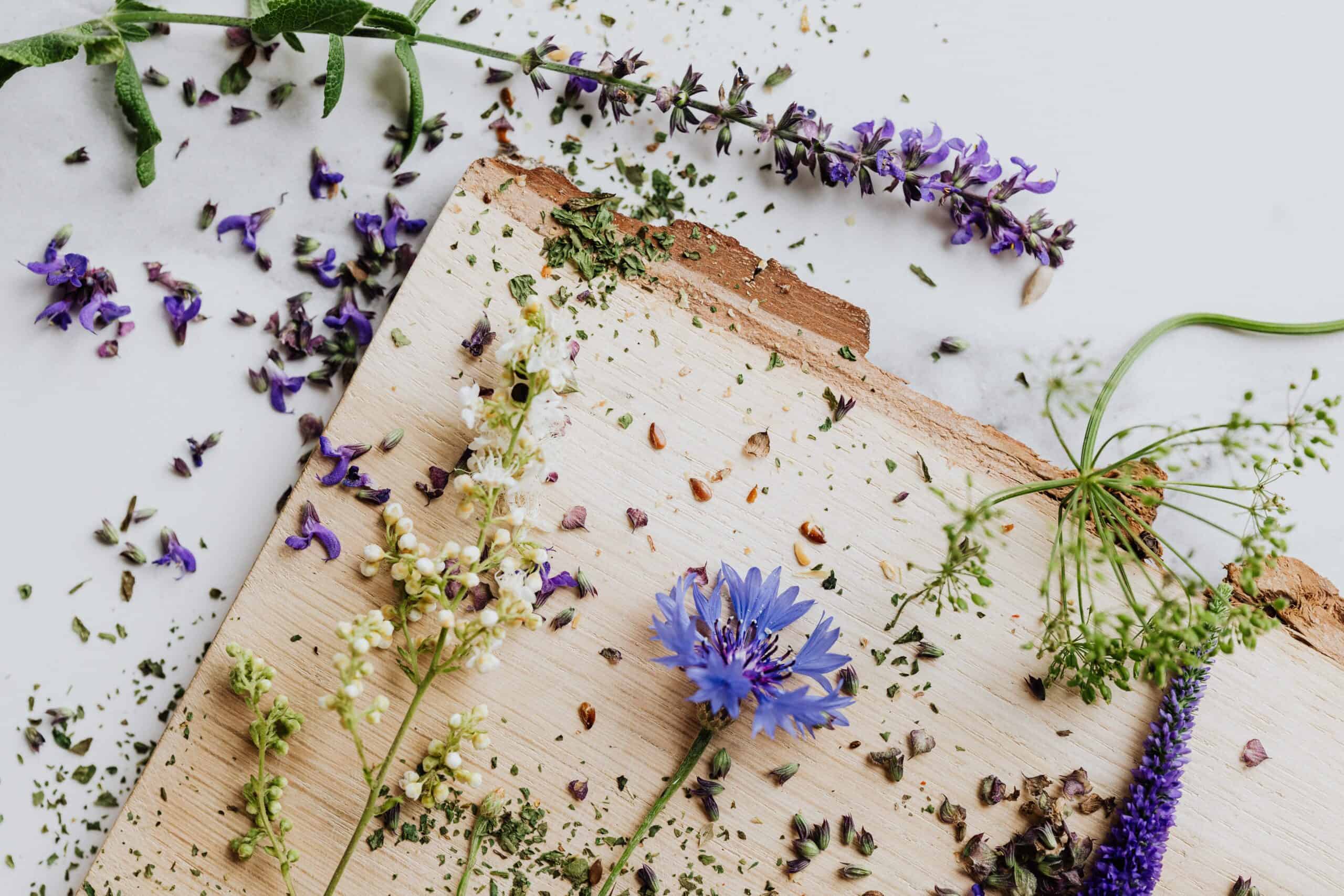 Are you looking for natural ways to promote hair growth and thickness? Do you want to know the best herbs for hair growth and thickness? Have you already tried conventional treatments but are not getting the desired results? If so, herbs may be just the thing for you.
Are you looking for natural ways to promote hair growth and thickness? Do you want to know the best herbs for hair growth and thickness? Have you already tried conventional treatments but are not getting the desired results? If so, herbs may be just the thing for you.
Herbal remedies have been used for centuries to treat various ailments affecting the scalp and hair. Many herbal treatments are known to help reduce inflammation in the scalp while stimulating blood circulation – both of which can promote healthy hair growth.
This article will discuss some of the best herbs that can help with hair growth and thickness. With this knowledge at your disposal, you’ll be able to make an informed decision about whether or not these herbal remedies are right for you!
What Causes Hair Thinning and Loss?
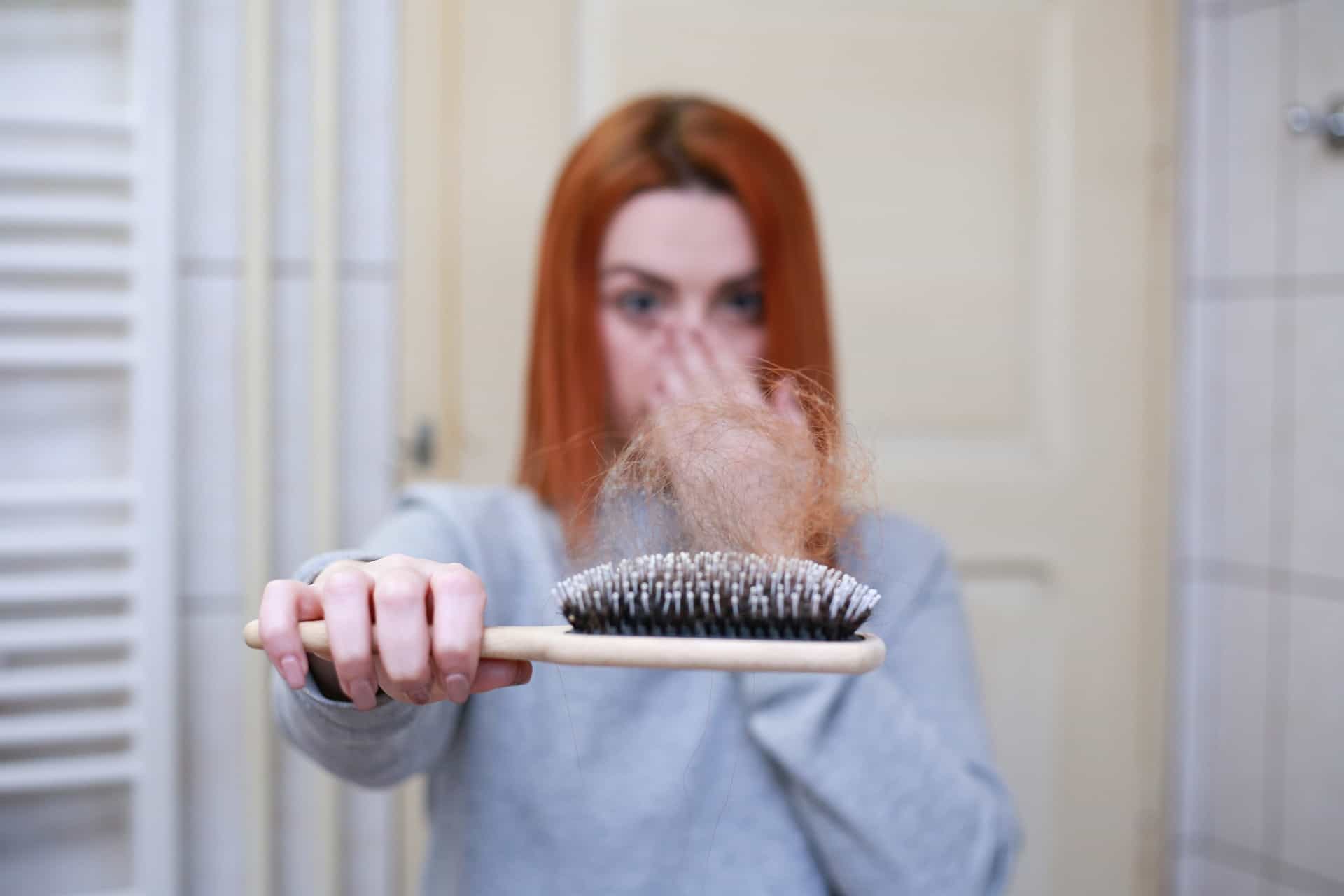
There are several causes of hair thinning and loss. One common cause is genetics, as some people’s genes make them more susceptible to hair loss and thinning than others. Other possible causes include age-related hormonal changes, a poor diet, illnesses like alopecia areata or hypothyroidism, medications such as chemotherapy drugs, environmental factors like pollution or extreme temperatures, and physical trauma to the scalp from hair styling tools or tight braids.
Other medical conditions that can lead to hair loss or thinner hair include;
- iron deficiency anemia
- telogen effluvium (an excessive shedding of hair )
- scalp infections such as ringworm and psoriasis
- autoimmune diseases like lupus and vitiligo
- stress and anxiety disorders
- nutrient deficiencies such as vitamin C and protein-rich foods
If you are experiencing signs of hair thinning or hair loss, it’s important to consult a doctor to determine the underlying cause. Once you understand why your hair is falling out or becoming thinner, you can begin exploring natural treatments for promoting healthy hair growth.
12 Best Herbs For Hair Growth And Thickness
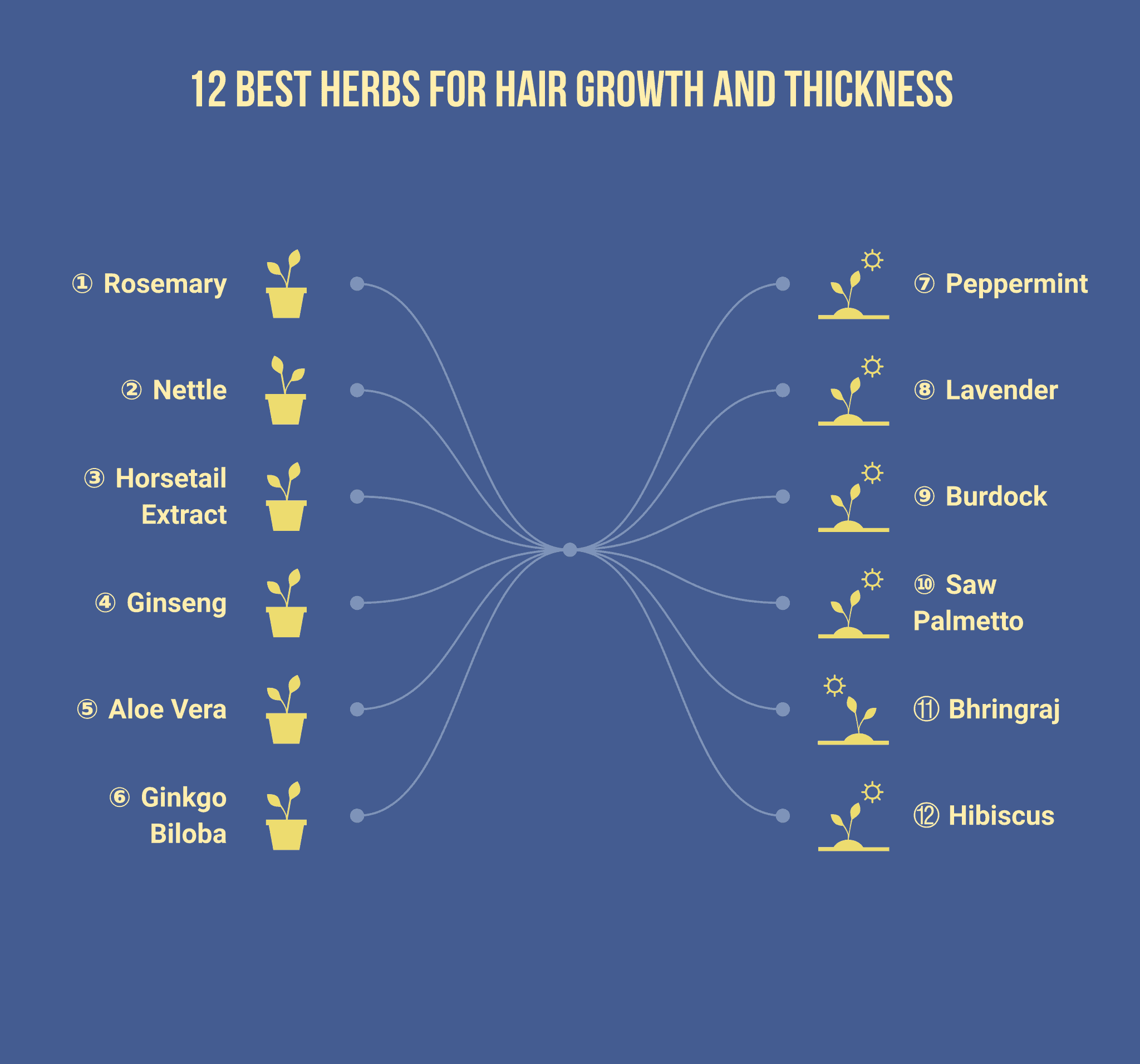
It’s crucial to keep realistic expectations when looking at the potential benefits of herbs for hair regrowth. There is no magic potion or natural remedy that will instantly bring back a full head of hair. Also, many plants marketed as hair-growth aids have not been subjected to rigorous scientific study.
That being said, there is evidence that some herbs can help with hair health and growth. Here are 12 of the best herbs for hair growth and thickness:
① Rosemary
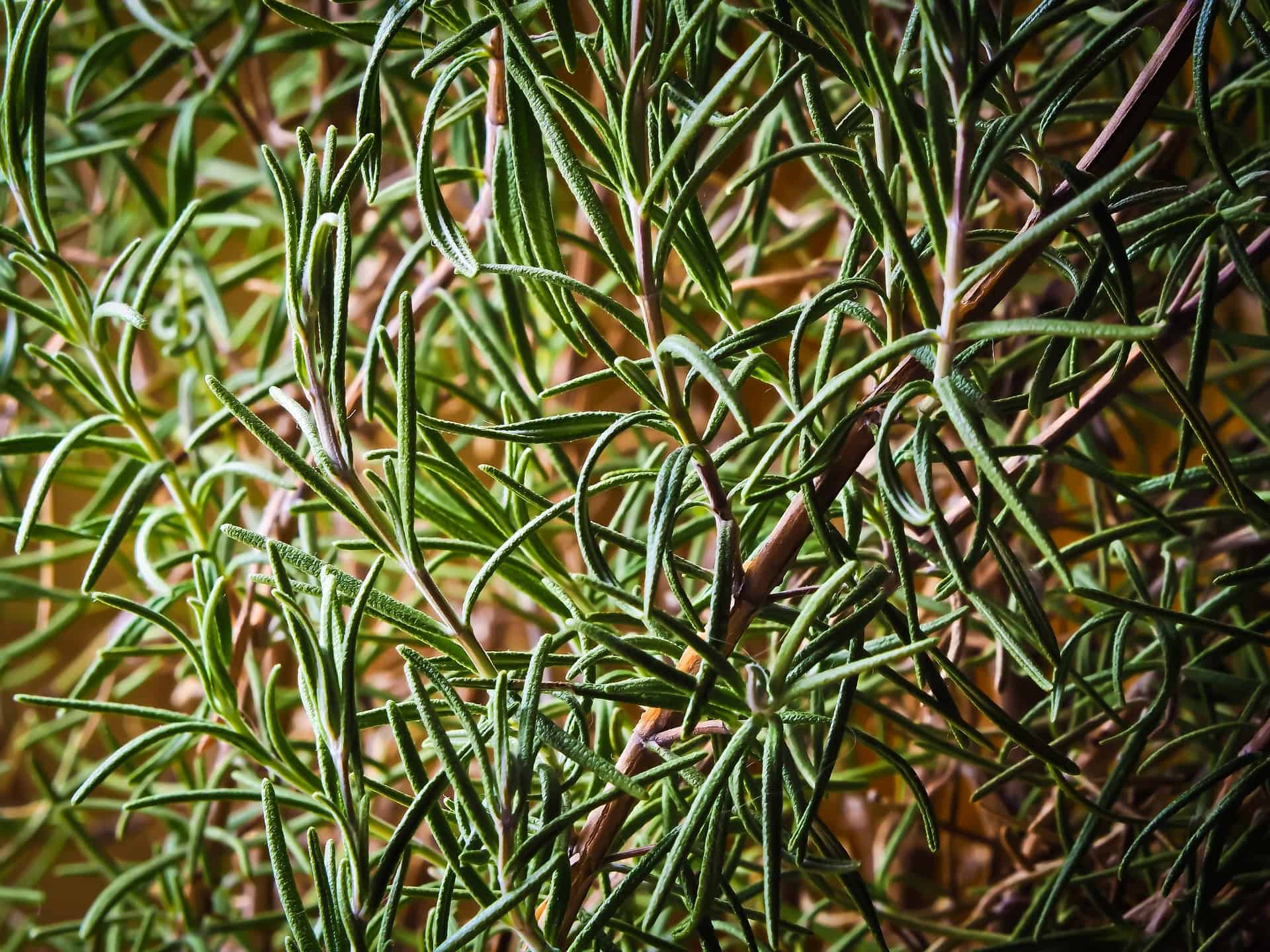
Rosemary has been used for centuries as an herbal remedy, not only for its potential hair-growth benefits but also for its medicinal properties. The herb is able to stimulate the scalp and improve circulation, which can help promote healthy hair growth. There have been few scientific studies on the topic, but anecdotal evidence suggests that rosemary oil may effectively promote hair growth and reduce hair loss.
The herb contains compounds like camphor, eucalyptol, and limonene that are thought to work together to help with scalp health. Rosemary is also rich in omega-3 fatty acids, minerals like magnesium and calcium, and vitamins such as C, A, and B-complex vitamins that can contribute to improved hair health. Additionally, it may help protect against free radicals due to its antioxidant properties.
Rosemary can be used topically or taken internally in teas or tinctures to reap its potential benefits. When applied directly onto the scalp as a massage oil or shampoo additive (tea tree oil is often added), it can help nourish the skin cells underneath the scalp’s surface while encouraging blood flow around the follicles. For maximum benefit from ingestion, you should use it in combination with other herbs such as nettle leaf and horsetail extract.
② Nettle
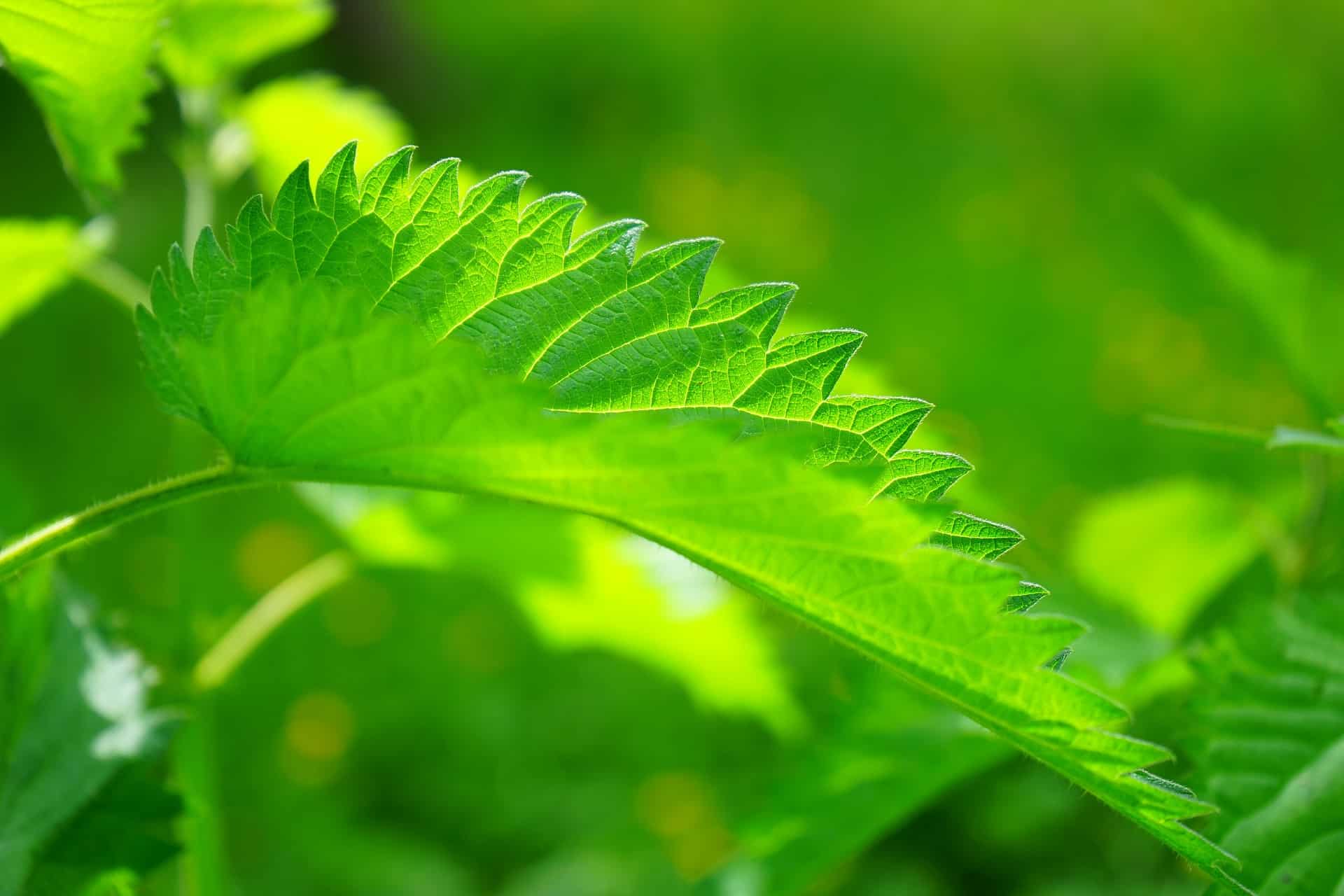
Nettles are packed with beneficial nutrients to promote healthy hair growth and thickness. This herb contains abundant vital minerals needed for a healthy scalp, such as folate, magnesium, and vitamin B-12. The high content of silica also supports thicker, stronger hair and roots.
Additionally, nettles provide an excellent source of vitamins A, vitamin C, and K, which are important for promoting healthy follicles for successful hair growth. These same vitamins help to maintain overall scalp health by providing nourishing antioxidants that may reduce inflammation caused by harsh chemicals or harsh styling techniques.
Nettles can be used in an infusion by steeping the leaves in hot water for 10-15 minutes and consuming them as tea. Alternatively, you can also purchase nettle supplements from health food stores to gain their potential benefits.
③ Horsetail
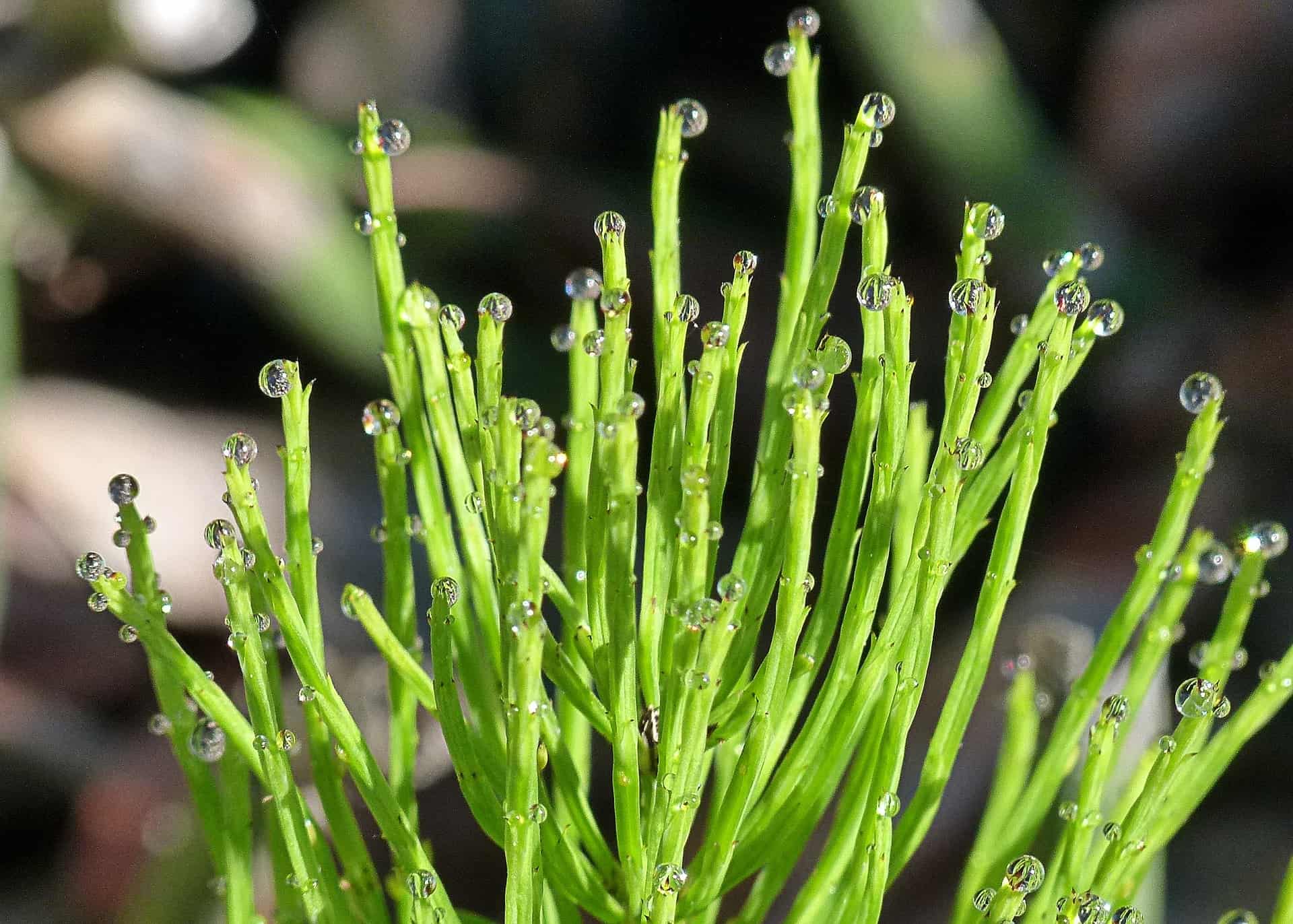
Horsetail extract has been around for centuries. However, its ability to improve hair health and promote hair growth has been investigated relatively recently. Research suggests that horsetail extract is rich in silica and other minerals. Along with polyphenols and antioxidant compounds that can help keep hair follicles healthy.
These ingredients also appear to stimulate blood circulation in the scalp, essential for nourishing natural hair growth. Many people have incorporated horsetail extract into their hair care routine. They have reported positive results, such as increased thickness and strength of their hair and decreased shedding and breakage.
While more studies need to be done on this natural ingredient, initial findings suggest that it can offer promising benefits both topically and internally for long-term hair health.
④ Ginseng
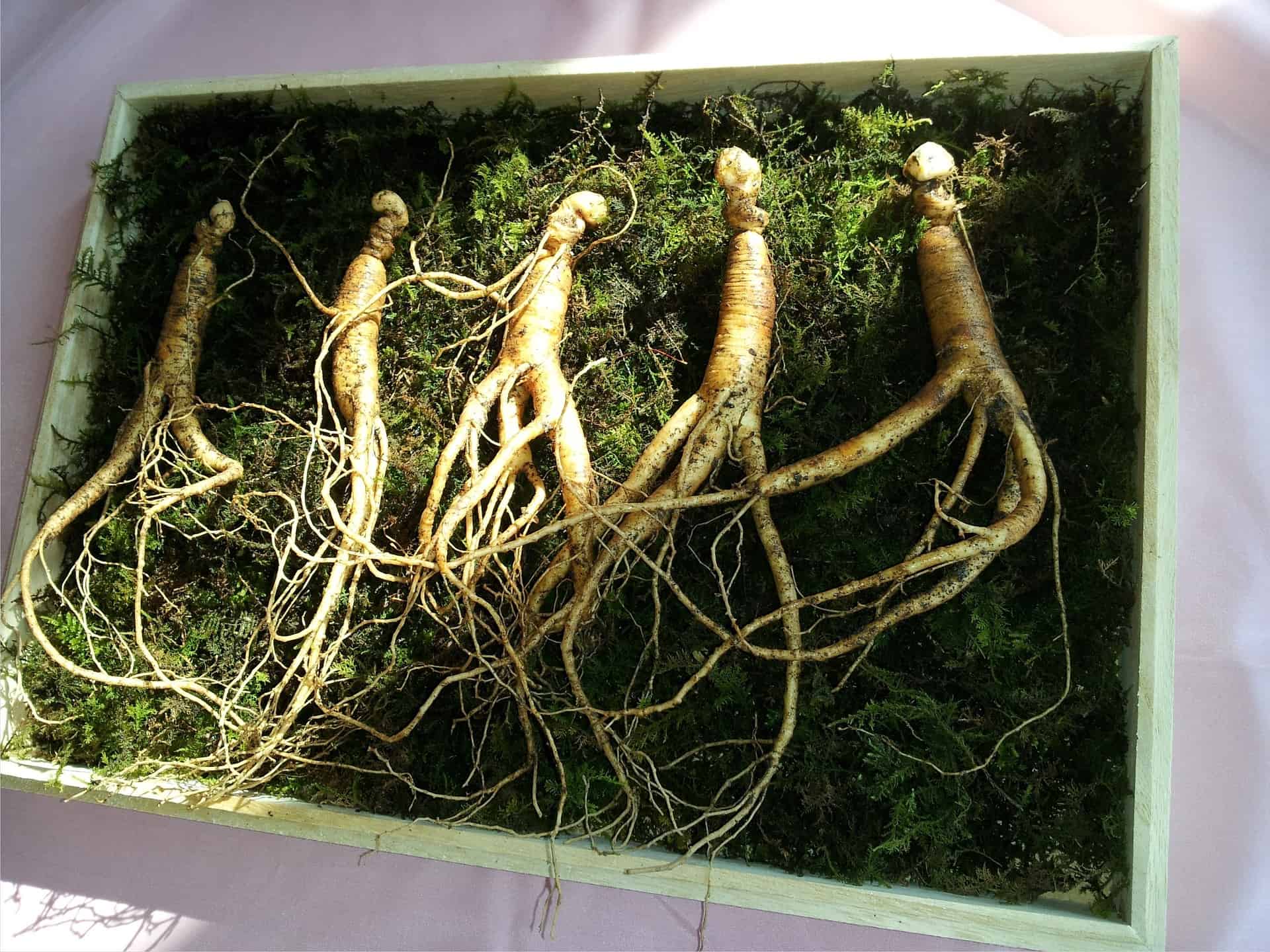
Ginseng is another popular herb that is thought to help promote healthy hair growth. This herb contains ginsenosides, compounds known to help boost circulation and improve the overall health of your scalp. In addition to its potential benefits for hair growth, it has also been found to have anti-inflammatory effects that can decrease sebum production in those with oily scalps.
Ginseng is also an adaptogen, meaning it can help the body better cope with stress and other environmental factors that may contribute to hair thinning.
To take advantage of these potential benefits, you can use ginseng topically in a shampoo or conditioner or consume it internally by adding powdered root to your favorite smoothies or juices.
⑤ Aloe Vera
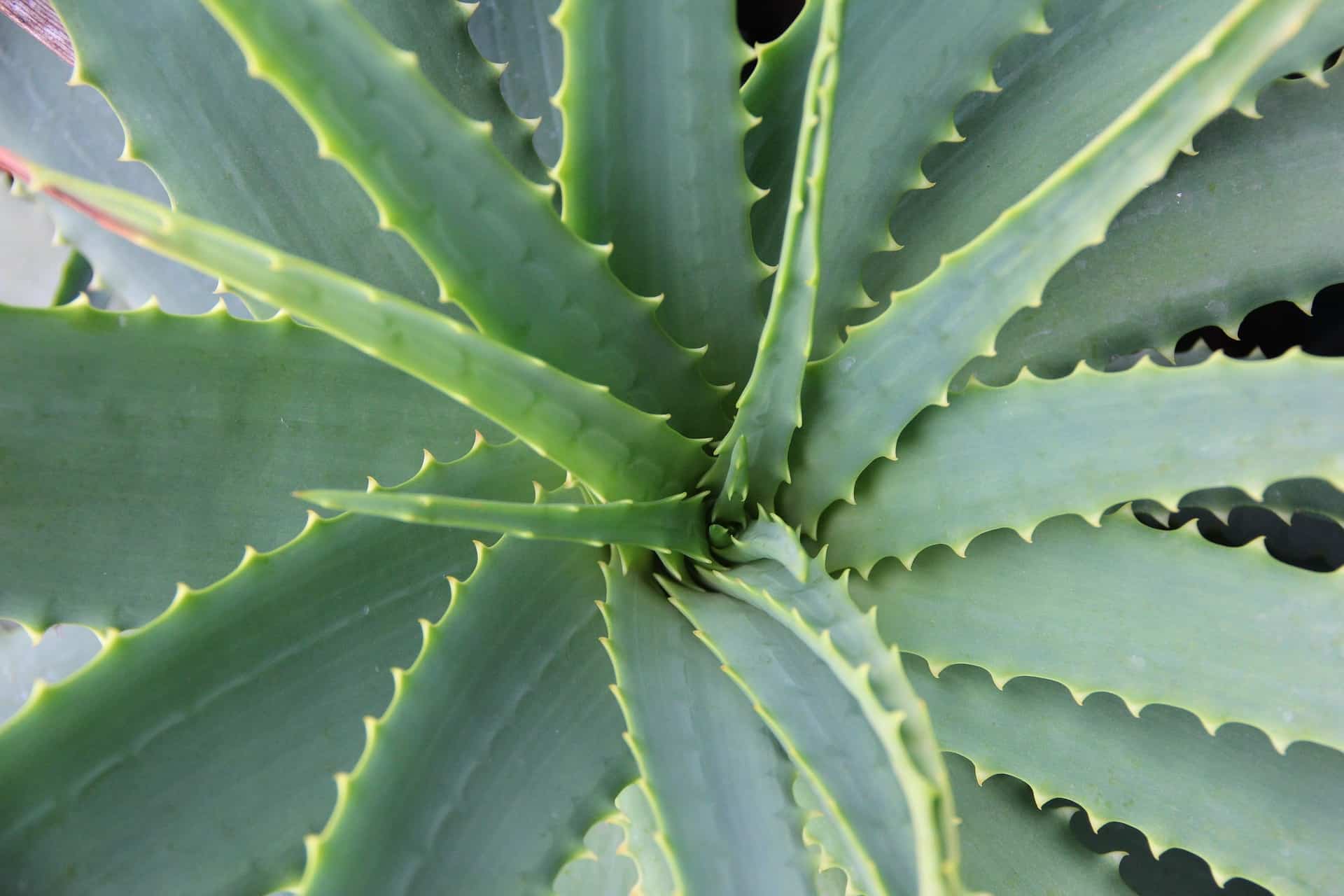
Are you looking for a gentle yet effective way to nourish your scalp and promote hair growth? Aloe vera may be just what you need. This succulent plant is widely known for its soothing properties due to the presence of compounds such as polysaccharides and enzymes that help reduce inflammation in the skin.
Its moisturizing effects are also beneficial for preventing dandruff and other scalp conditions that can interfere with healthy hair growth. For the best results, look for products containing 100% aloe vera or apply aloe vera gel directly to your scalp daily.
⑥ Ginkgo Biloba
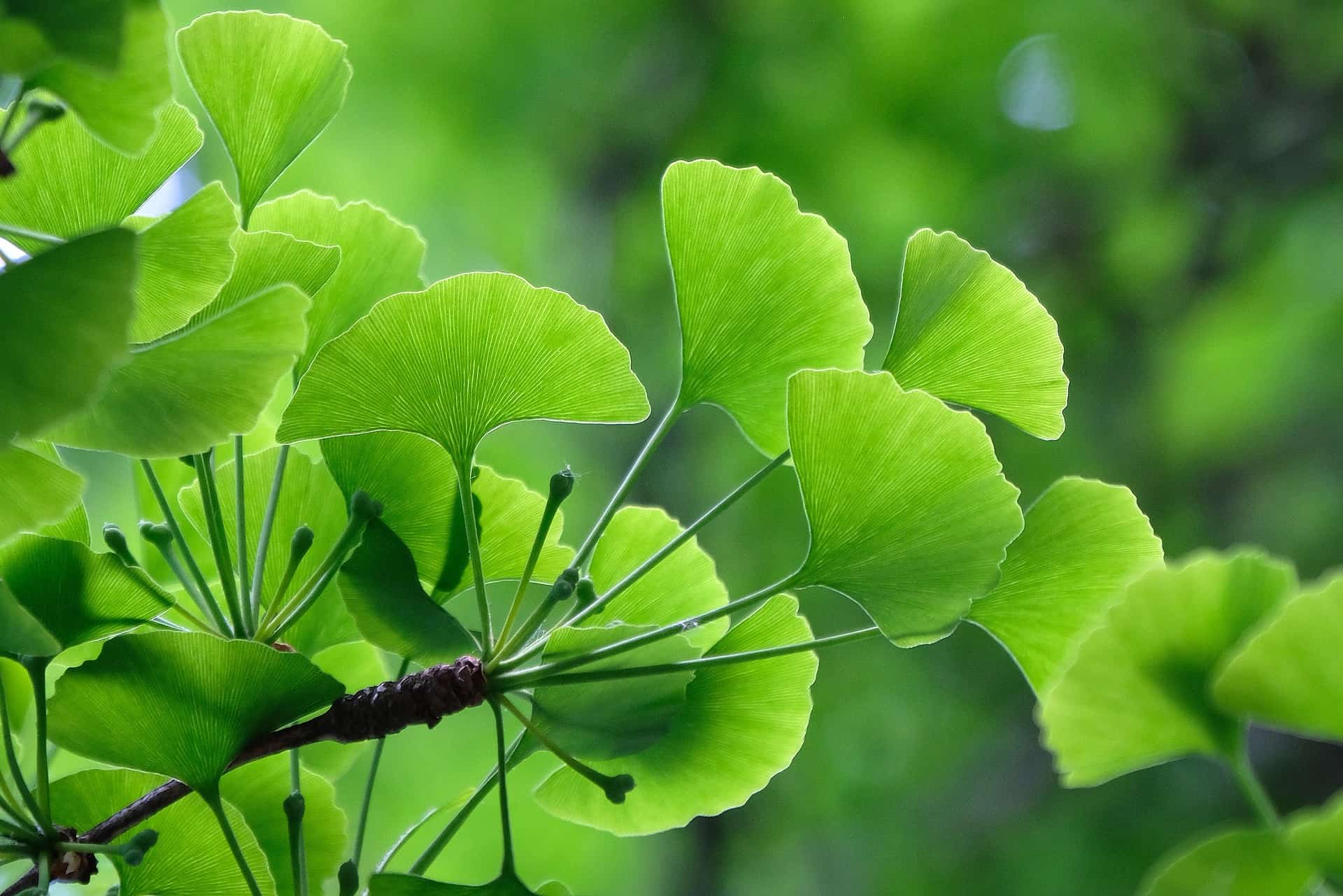
Ginkgo Biloba is an ancient medicinal herb used for centuries to improve overall health and well-being. The primary benefit of ginkgo biloba for hair growth is its ability to increase blood flow in the scalp, which helps to provide essential nutrients and oxygen to the follicles.
Plus, it contains powerful antioxidants that can fight off harmful free radicals that can damage the hair follicle and inhibit healthy hair growth. Studies have also suggested that ginkgo biloba may protect against oxidative stress caused by environmental factors such as too much sun exposure or pollution.
Ginkgo biloba is generally considered safe for most people. However, those with certain medical conditions should consult their doctor before taking it, as it can interact with some medications.
To maximize absorption, split your daily dose of 40-80 mg into two smaller servings and take them at breakfast and dinner. Some people prefer to apply a topical solution containing ginkgo directly to the scalp. You can leave this solution overnight and then rinse it off in the morning.
⑦ Peppermint
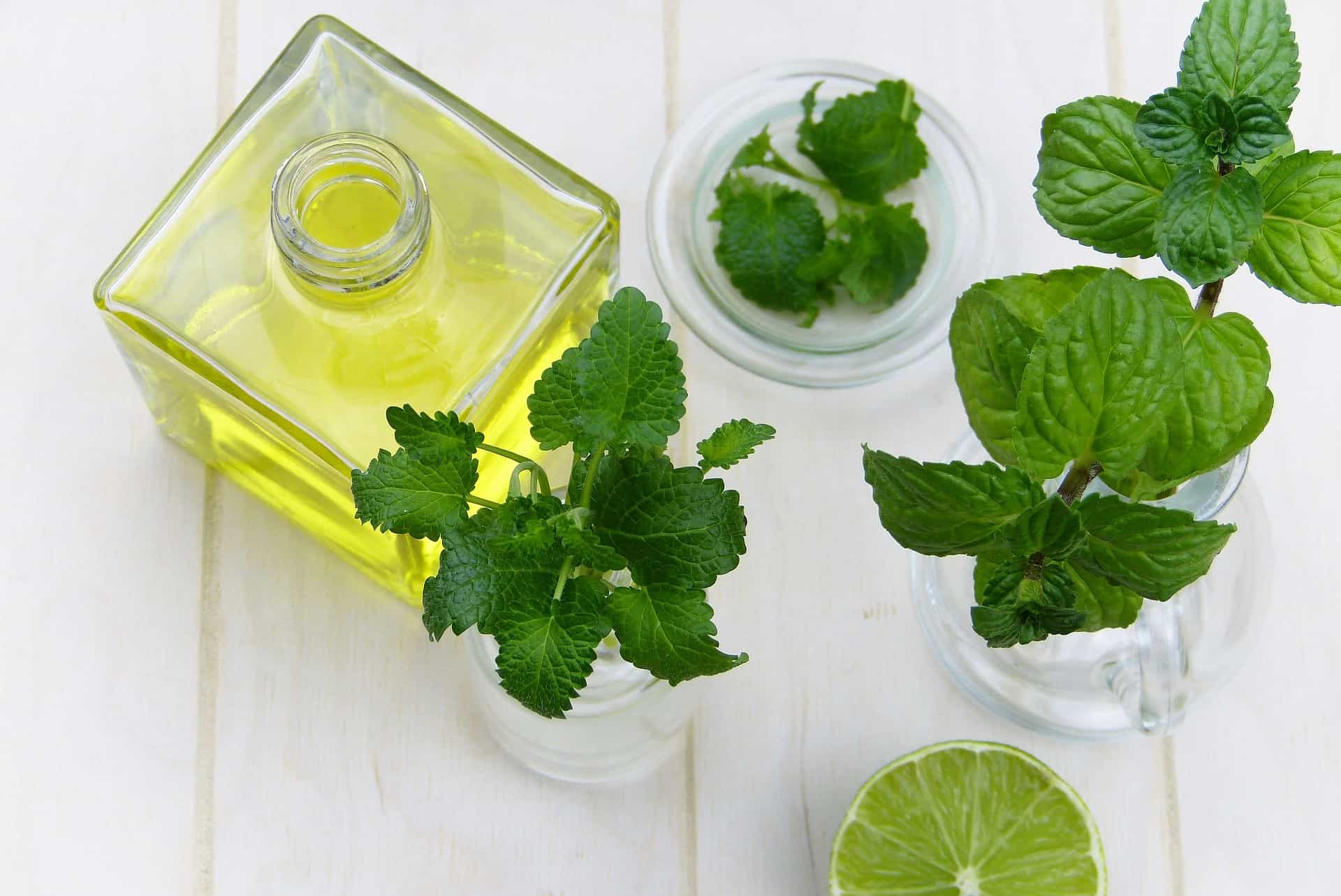
Peppermint is a fragrant herb native to North America and Europe, which has been used for centuries in traditional medicine to treat various ailments. It contains menthol and other compounds known to have antibacterial, anti-inflammatory, and antiseptic properties. When used topically on the scalp, peppermint can help stimulate blood flow, reduce itchiness, relieve dandruff, and even encourage healthy hair growth.
The most common way to use peppermint on the scalp is in the form of a shampoo or conditioner containing essential oils derived from this herbal remedy. The menthol content helps open up the scalp’s pores and boosts circulation to promote healthier hair follicles. This improved circulation then delivers the necessary nutrients to nourish new hair growth.
Regular use of peppermint-infused products can also create an environment that’s less hospitable for bacteria and yeast that can cause infection and inflammation on the scalp, which can interfere with healthy hair growth.
Regular massaging of peppermint oil on your scalp can also provide some benefits for hair health as it helps increase blood flow by increasing movement in capillaries near your skin’s surface. In addition, its cooling effects may be able to soothe irritation caused by dryness or other conditions, such as eczema or psoriasis, that can interfere with healthy hair growth.
⑧ Lavender
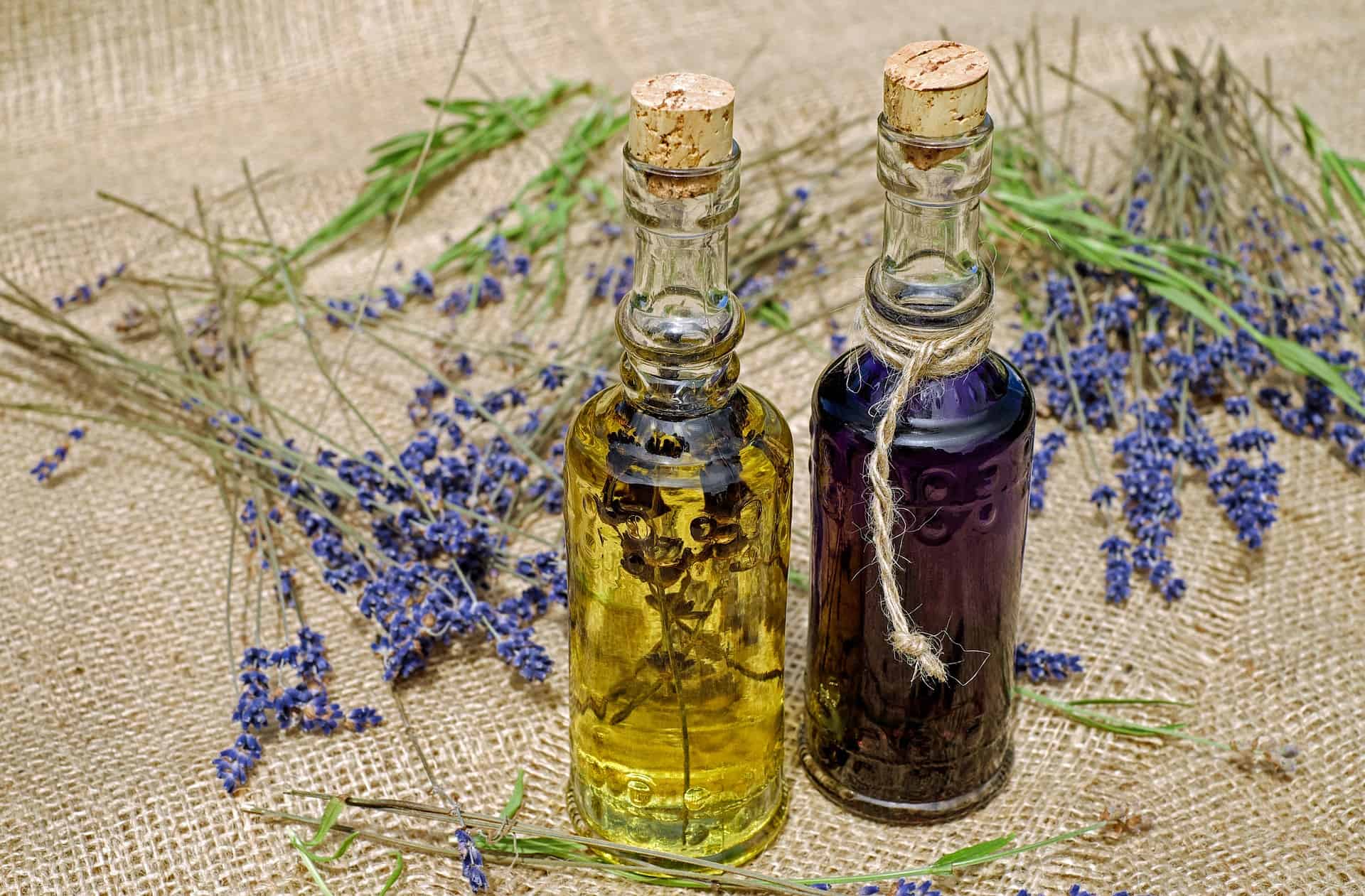
Who isn’t a fan of lavender’s calming aromatherapy effects?
In addition to its pleasant aroma and calming effects, this flowering plant also promotes healthy hair development.
The Mediterranean has long been the home to lavender, a fragrant herb used for generations in cosmetics like perfumes and soaps. It is also well-known for its relaxing effects through aromatherapy and its ability to help one unwind.
For hair growth, it can help increase blood flow by increasing movement in capillaries near the surface of your skin. Plus, it helps reduce irritation caused by dryness or other conditions such as eczema or psoriasis.
It’s commonly found in shampoos and conditioners. As with all oils, it’s important to be mindful of how much you’re using. Overdoing can lead to other issues, such as an overly greasy scalp or clogged pores in the skin beneath your hair.
You should also remember that while lavender oil may help with hair growth, it isn’t a miracle worker. The results may vary depending on several factors, including diet, lifestyle choices, and genetic predisposition.
⑨ Burdock
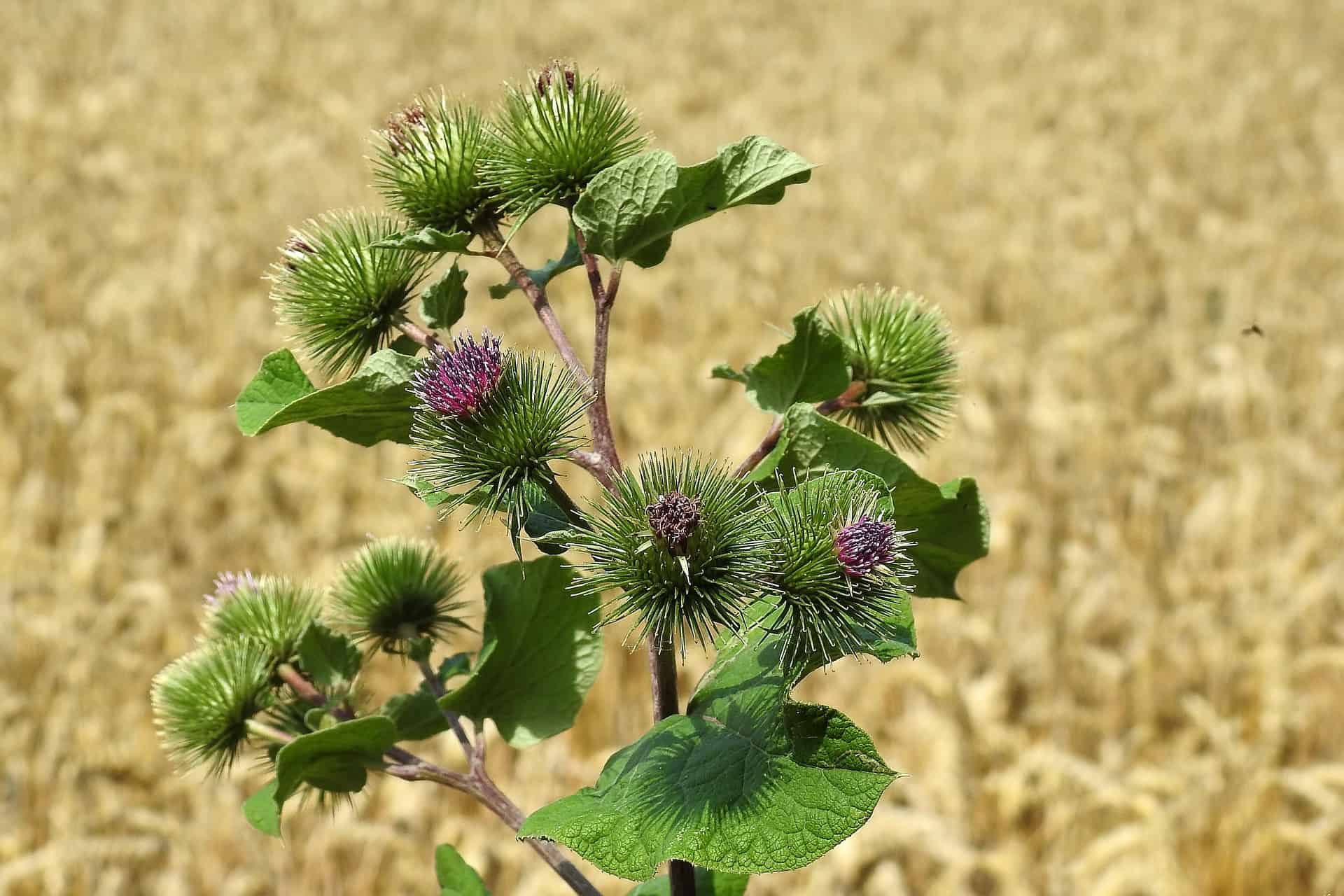
Burdock’s high concentration of vital fatty acids and phytosterol components makes it useful for soothing an itchy scalp and preventing hair loss. These two components give it the ability to stimulate new growth, which is why it’s included in so many hair restoration solutions. And the fatty acid in this plant are effective in treating psoriasis.
According to the University of Maryland Medical Center, in a trial of 40 psoriasis patients, those who combined their prescription treatments with fish oil rich in the same fatty acids found in burdock saw better benefits than those who took only their medication.
Many people believe that the burdock root might help remove excess oil from the scalp because of its purported detoxifying abilities. This herb is available in the form of herbal tinctures, teas, oils, and supplements.
To use it as a shampoo or conditioner, you can make your burdock-infused oil by combining equal parts burdock root, jojoba oil, and olive oil. Massage it into your scalp for at least 10 minutes before rinsing thoroughly.
⑩ Saw Palmetto
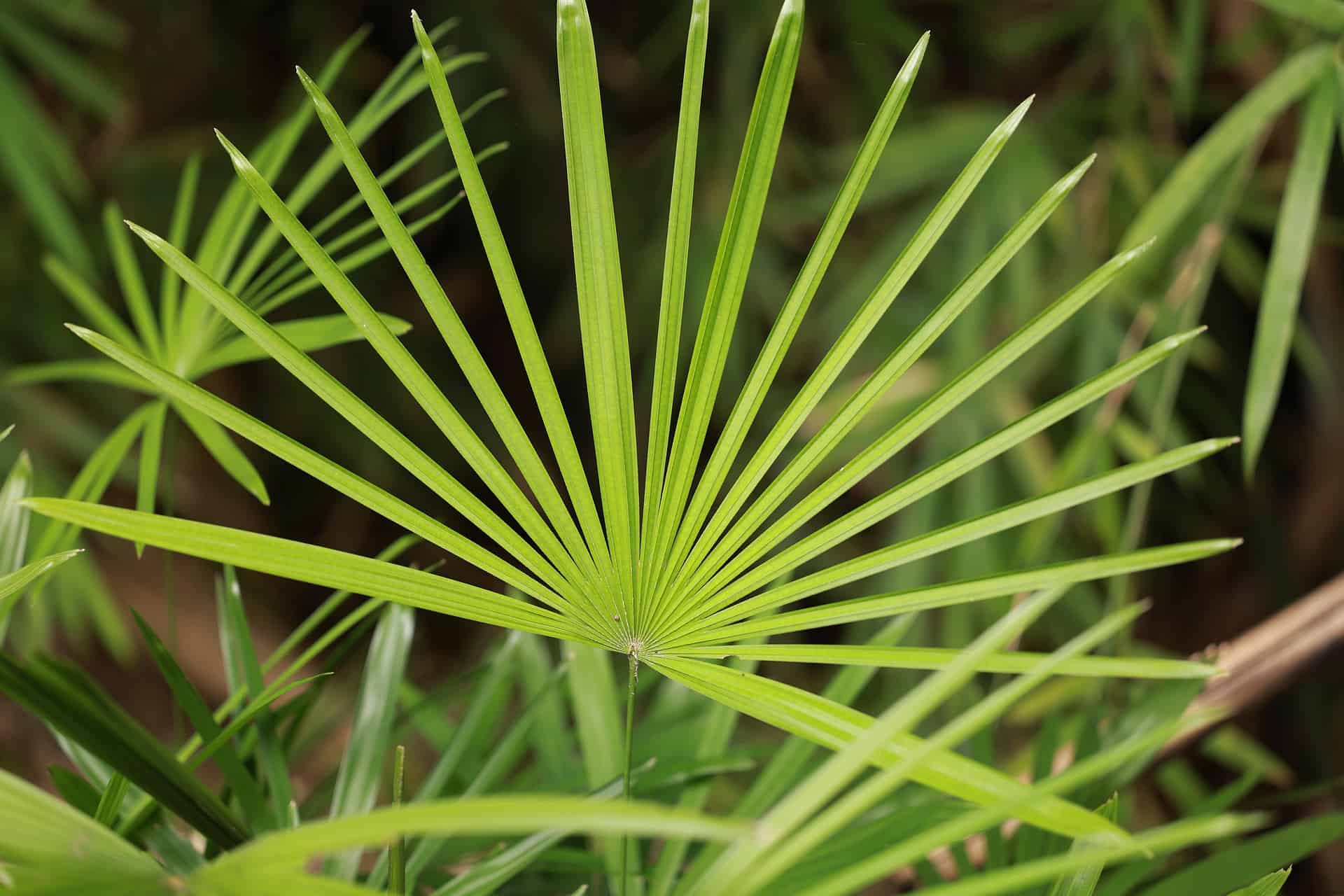
Saw Palmetto, or Serenoa repens, is a palm tree native to the southern United States. It is believed to have anti-inflammatory, anti-androgenic, and even antiseptic properties, making it a popular choice for those looking for natural remedies for hair growth. The extract from the saw palmetto berries contains fatty acids and sterols. It that can help block the production of DHT (dihydrotestosterone), which contributes to hair loss.
It may also stimulate new hair growth by increasing blood flow while decreasing inflammation on the scalp and reducing sebum production. You can use a shampoo or oil saw palmetto to apply it directly to the scalp.
Still, some people may experience adverse reactions when using it in concentrated doses like this, so talk to your doctor before starting a regimen.
⑪ Bhringraj
Bhringraj, or Eclipta alba, is an Ayurvedic herb used for centuries in India to treat various health issues. This aromatic herb contains compounds like wedelolactone and ecliptic, which are known for their anti-inflammatory and antioxidant effects, which can help protect the scalp from damage.
Bhringraj oil is commonly used in Indian households to stimulate the better circulation of the scalp, thus encouraging good hair growth. It can help thicken existing strands of your natural hair and add volume to your hairstyle.
Bhringraj works best when its applications are followed with a proper diet that consists of nutritional foods. Regular use of Bhringraj oil can bring about greater hair health and improved skin texture.
⑫ Hibiscus
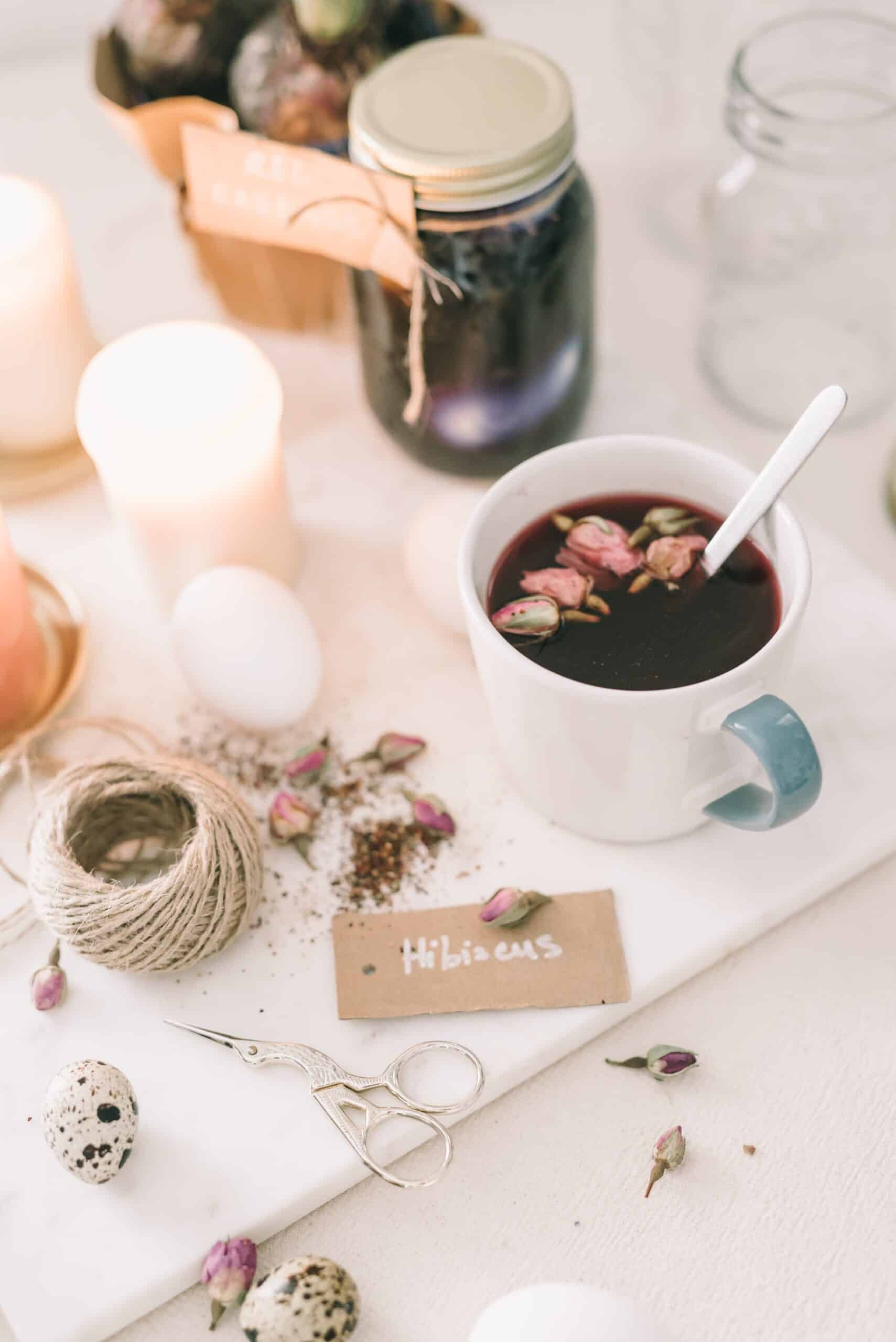
Hibiscus, or Hibiscus Rosa-Sinensis, is a flowering plant found in tropical climates. The beautiful flower is revered for its medicinal properties and has been used for centuries to treat various health issues. It contains high levels of vitamin C that stimulate hair growth by promoting collagen production and amino acids that help strengthen the hair follicles and prevent breakage.
You can massage hibiscus oil into your scalp regularly to reduce dandruff and improve the overall texture of your hair. Hibiscus powders are also available to mix with water or other liquids like coconut milk to create a paste-like consistency before applying it to your scalp. For best results, allow the mix to sit on your scalp for at least 30 minutes before rinsing off.
It’s no surprise that these herbs are still popular today, given their long history of use throughout cultures. Not only do they provide a natural way to promote natural hair growth, but they also impart many other benefits that keep your scalp and hair healthy and strong.
How To Maintain Healthy Hair
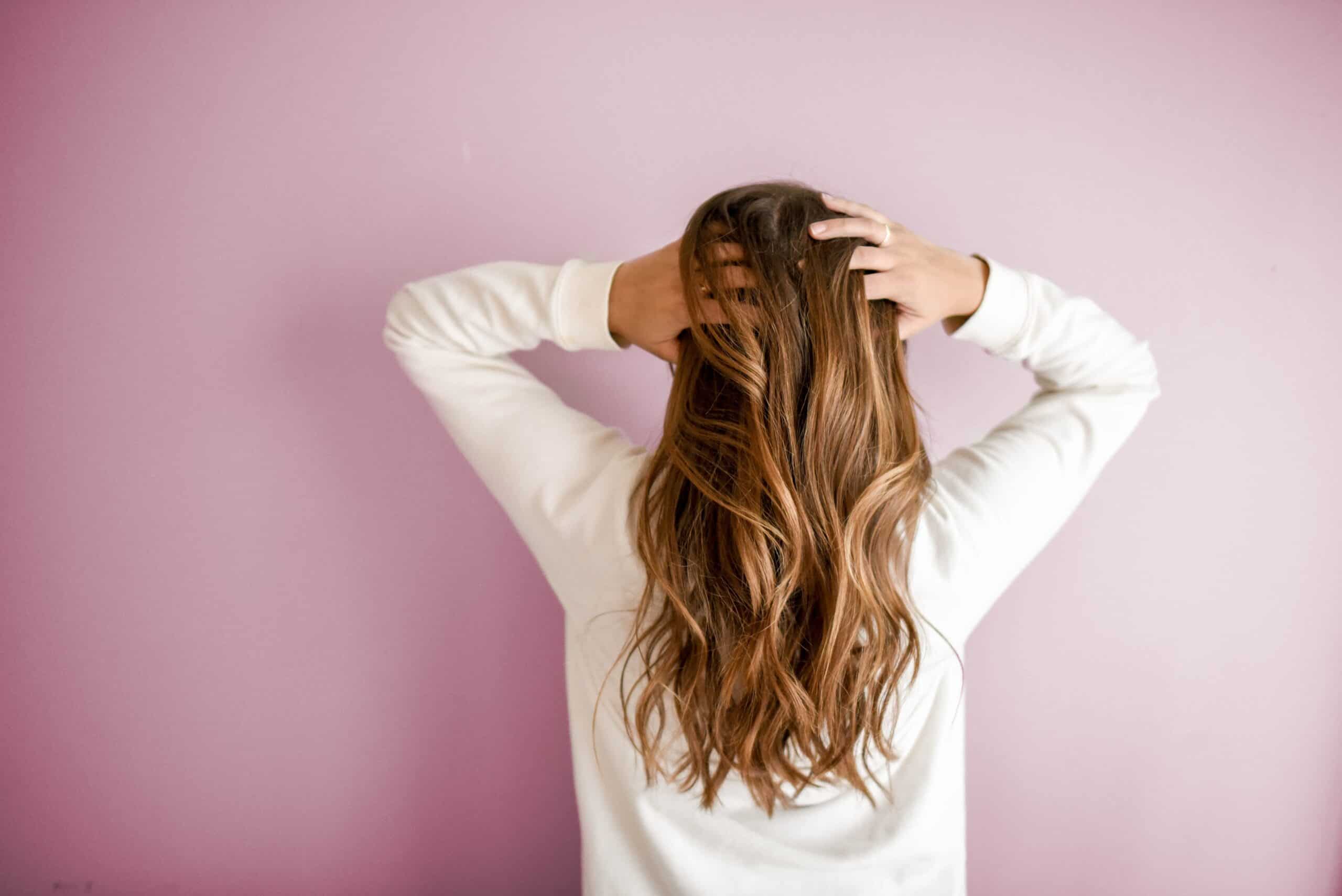
Though herbs are an effective way to promote hair growth and thickness, there are also some other measures you can take to ensure your hair and scalp stay in top condition. Here are a few tips:
🍎 Eat A Healthy Diet
Eating a nutritious diet is vital for maintaining good hair development and thickness. It is possible to receive the vitamins and minerals necessary for good hair development from a well-balanced diet that includes a variety of fresh fruits and vegetables, lean proteins, whole grains, and healthy fats.
Foods such as fish, eggs, yogurt, nuts, and dark leafy greens are especially beneficial for improving hair growth.
♨ Don’t Use Too Much Heat When Styling
The use of excessive heat styling tools might cause dryness and breakage. Avoid using heated styling products like curling irons and flat irons and chemical treatments like relaxers and dyes. It would be best to use a heat protectant spray or serum before applying these items.
👱 Use A Mild Shampoo And Conditioner
Using a mild shampoo and conditioner can help keep your scalp and hair clean without stripping away natural oils. Look for sulfate-free products, as these will be gentler on your hair and scalp.
🌿 Include Herbs In Your Regimen
Herbs like Bhringraj and Hibiscus can help to strengthen, nourish, and moisturize the scalp and hair shafts, thus promoting thicker and healthier hair growth. Incorporating these herbs into a regular hair care routine can be beneficial for maintaining healthy hair growth and thickness.
🚿Wash Oily Hair More Frequently
Since oily hair tends to attract more dirt and dust, it’s important to wash your hair regularly. Washing your hair at least every other day will help keep the scalp free of buildup, allowing natural oils to nourish and protect the hair shaft.
🏊 Protect Hair When Swimming
Chlorine and salt water can be damaging to the hair, so it’s important to take protective measures when swimming. You can lessen the chlorine or salt your hair absorbs by wetting it before entering the pool or ocean.You should also wear a swim cap or scarf. Then, rinse your hair with fresh water as soon as you leave.
✅ Use A Deep Conditioning Treatment
Deep conditioners are great for restoring moisture to dry and damaged hair. Look for products that contain natural oils like argan or jojoba. These can help nourish your strands and promote healthy growth. Make sure to use the deep conditioner at least once every week to keep your hair hydrated and healthy.
Frequently Asked Questions
Q: Can a natural hair oil help with hair growth and thickness?
A: Yes. Natural oil can help nourish the scalp and promote healthy hair growth. Natural oils like argan, jojoba, and coconut oil are great for restoring moisture to the hair shafts. Moreover, these oils also contain antioxidants that can help protect your scalp from damage caused by free radicals. Some people find that massaging a few drops of oil into their scalp before bedtime helps nourish the scalp and promotes stronger hair development.
Q: Do certain vitamins or minerals help with hair growth?
A: Yes, certain vitamins and minerals can play an important role in promoting healthy hair growth. Vitamins like A, C, and E, as well as biotin, zinc, and iron, can all help to nourish the scalp and encourage healthy hair growth. Incorporating nutrient-rich foods into your diet and taking a multivitamin supplement if needed can help ensure that you are getting enough of these important vitamins and minerals for optimal hair health.
Q: What other ayurvedic herbs could be beneficial for hair growth?
A: Other useful ayurvedic herbs for promoting hair health include Shikakai, Amla, Neem, and Tulsi. These herbs are packed with vitamins and minerals that can help to nourish the scalp and encourage healthy hair growth. In addition, they contain natural antifungal and antibacterial properties that can help to protect the scalp from infections and other issues.
Q: Does hair growth powder work?
A: Yes, certain hair growth powders can enhance hair growth and thickness. These powders are typically made from a combination of ayurvedic herbs blended into a fine powder. When applied directly to the scalp and massaged, these powders can help nourish the follicles and promote healthy hair growth.
Q: Are there any other tips that would help with hair growth?
A: Yes. Besides using natural oils, vitamins, minerals, and herbs for hair care, healthy habits are also important. Avoid brushing or combing wet hair, which can lead to breakage and split ends. Additionally, it is best to use a wide-toothed comb when detangling knots and never pull on tangles with force. Finally, be sure to trim split ends regularly to help keep your hair healthy and strong.
Final Words
As you can see, numerous herbs and ingredients can help to promote healthy hair growth and thickness. Make sure to research each one thoroughly to determine what would work best for you. Furthermore, combining a proper diet with these herbs and practicing proper hair care habits can help to ensure the best results possible. With this advice in mind, you can look forward to healthier and fuller hair in no time.
